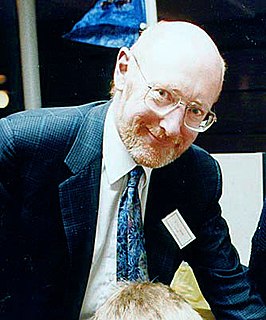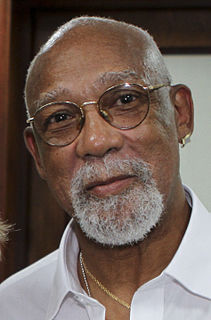A Quote by David Levering Lewis
Harlem was an exciting place in the '50s. There were nightclubs that, as a student of Columbia, you dashed off to. The community seemed very viable still.
Related Quotes
Harlem was a development, a developer's dream and a place where residents had more space and more amenities than ever before. The subway reached 145th street about 1904, and it seemed that Harlem's destiny was to become largely a preserve of successful ethnics relocating and arriving. Then, overnight, the bust took place.
I am particularly conscious of my connection to the poets of the Harlem Renaissance because I, too, am a Black poet, born into, and shaped by, the very community in which those poets of the past produced so much of the work we associate with the Harlem Renaissance. We speak from the same place, both literally and metaphorically.
When I was young, I went to college, had a teacher who was, had been a student of Trilling's at Columbia, this was in California. And he, I started reading him around that time, and then I went to Columbia as well, Trilling was still teaching there, I took a course with him. He was not a great teacher, but he was, when I was younger, he was a good model for the kind of criticism I wanted to do, because he thought very dialectically.
As a kid growing up and seeing so much strife taking place in society, and particularly on Blacks and people of color, I had an opportunity as a young man to witness the change that was taking place in Harlem, the exodus of white folks leaving Harlem, which I thought was a very cohesive situation. But they felt that they needed to leave.
When I was 17, I worked in a mentoring program in Harlem designed to improve the community. That's when I first gained an appreciation of the Harlem Renaissance, a time when African-Americans rose to prominence in American culture. For the first time, they were taken seriously as artists, musicians, writers, athletes, and as political thinkers.
Sara Blair's Harlem Crossroads is an important addition to the body of literature that currently exists about Harlem. It brilliantly illuminates the complex relationship between photographic representation and race, and adds new insight into the ways in which this one black community has figured in both the critical and public imaginations. Harlem Crossroads is a tour de force.
It's exciting having a student who is not used to expressing their emotional side and bringing that out in them and see that developing and helping to nurture that. That's an exciting thing. In a class of fifteen there are usually two very good writers, equal to good student writers anywhere in the country. Those two make the class wonderful.
In the past, there has been a stigma surrounding community colleges, where they were seen as a less viable option because they are not four-year universities. I know differently and so do the millions of people across the country who have received an affordable, quality higher education at community college.
Whether we're talking about the New Deal or the Great Society: they didn't come about because they wanted to buy people off with "hush money." They were the outcomes of struggles. They were the outcomes, in the 1930s, of a viable socialist-communist movement. They were the outcomes of a viable workers' movement. FDR didn't give in because he wanted to shut people up, he gave in because he was under pressure. He had no choice.






































